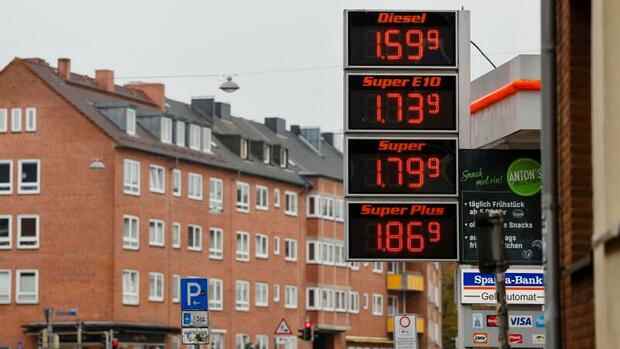The Bundesbank expects inflation of almost six percent for October.
Berlin, Frankfurt The Bundesbank believes a surge in inflation in Germany to just under six percent in November is possible. In October, the harmonized consumer price index HICP, which the ECB uses for its monetary policy, rose to 4.6 percent in Germany. This month the rate could be “even close to six percent,” wrote the central bank in its monthly report published on Monday.
Rising oil and fuel prices drove the inflation rate in October to its highest level in 28 years. For example, statistical special effects related to the temporary VAT reduction in Corona year 2020 are driving up prices. The Bundesbank points out that this so-called base effect will no longer apply in January. The old tax rates have been in effect again since the beginning of this year.
“Then the rate of inflation should drop noticeably, although the strong rise in market prices for natural gas will probably only be passed on to consumers for the most part after the turn of the year,” wrote the central bank. The experts anticipate that the rate of inflation will gradually decrease in the coming months of the coming year. “But it could stay well over three percent for a long time.”
In this context, the central bank is critical of the plans of the possible new federal government to increase the minimum wage to twelve euros per hour towards the end of 2022. This would have “non-negligible spillover effects” on the higher wage groups, explained the Bundesbank. “This should also increase wage pressure in the future.”
Top jobs of the day
Find the best jobs now and
be notified by email.
Behind this is concern about a spiral of rising prices and rising wages, for which economists have not yet seen any signs. In addition, such a political stipulation could devalue the independent minimum wage commission, argued the Bundesbank.
ECB: Rise in inflation is temporary
The European Central Bank is aiming for an annual inflation rate of two percent for the currency area of the 19 countries and is at least temporarily ready to accept a moderate increase or decrease in this mark. From the perspective of the central bank, the current rise in inflation is temporary.
Europe’s monetary watchdogs will therefore not allow themselves to be urged to exit the policy of cheap money more quickly. ECB President Christine Lagarde recently affirmed that the central bank will continue to support the economy even after the acute pandemic is over. “We are not taking this phase of higher inflation lightly,” assured Lagarde.
However, the ECB should “not go over to an early tightening of monetary policy in view of temporary or supply-related inflation shocks.”
The outgoing Bundesbank chief Jens Weidmann recently warned the ECB against committing too long on a very loose monetary policy stance. The inflation outlook is extremely uncertain. Rising inflation expectations and wage increases could lead to further inflation in the medium term.
The Bundesbank’s monthly report states that the economic recovery was reflected in higher new deals in the summer than in the previous year. The macroeconomic framework also indicated stronger wage increases for collective agreements to be renewed in the near future.
More: Lagarde and the German financial elite argue over inflation risks
